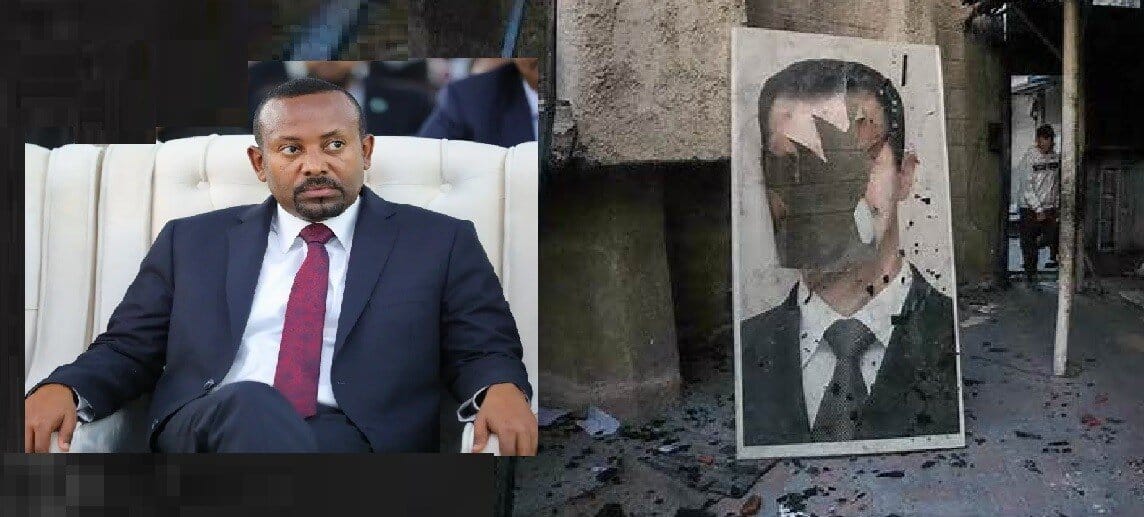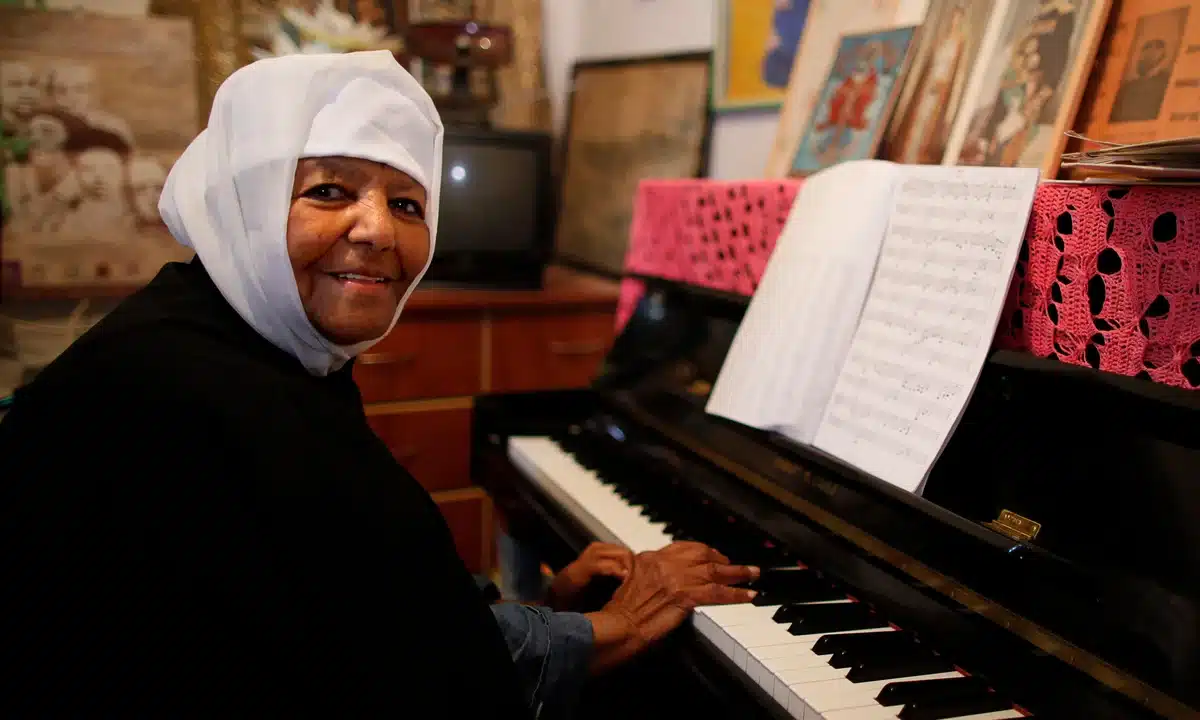Business Wire LOS ANGELES -- June 23, 2021As the process to appoint a new Director-General of the World Health Organization (WHO) gets underway, United Nations Member States must consider a change in leadership at the WHO, according to AIDS Healthcare Foundation (AHF), the world’s largest provider of HIV/AIDS care globally. The appointment of the next WHO Director-General is slated for May 2022 after the current WHO chief, Tedros Adhanom Ghebreyesus, completes his first term by the end of 2021. “Extraordinary circumstances call for extraordinary leadership, which is why we need a new candidate to head up the WHO. When looking at some of the most glaring missteps in the global response to COVID-19, it’s clear that following the same path will not end the pandemic anytime soon,” said AHF President Michael Weinstein. “When billions of lives are on the line, a WHO leader must be unencumbered by allegiances to anyone but his duties to openly speak and do whatever is necessary to protect global public health. Sadly, that hasn’t been the case in the ongoing pandemic.” The COVID-19 crisis has demonstrated that when the pandemic called for bold leadership and innovative thinking, the WHO repeatedly became mired in international politics and bureaucracy, instead of quickly implementing critical public health measures. These repeated failures leave the world vulnerable to new and ongoing health emergencies unless an independent and proactive leader is put in charge of the WHO. “The entire world has felt the ramifications of the slow response to COVID-19, but the long-term economic and social impact on Africa will be particularly acute given the current vaccine shortages,” said AHF Africa Bureau Chief Dr. Penninah Iutung. “If we are to truly protect the health of the entire world, the WHO must be led by someone beyond reproach who is willing to speak up no matter the circumstances. The past mistakes with COVID-19 and other infectious disease outbreaks over the past half-decade make it clear WHO must change its direction.” The following six reasons underscore why WHO needs a new Director-General: 1. WHO delayed declaring COVID-19 a pandemic. Despite the spread of COVID-19 to multiple countries, the WHO waited until March 11, 2020, to declare a pandemic, 40 days after declaring it a Public Health Emergency of International Concern (PHEIC). 2. Lack of transparency regarding the origin of COVID-19. WHO Director-General Tedros Adhanom Ghebreyesus repeatedly praised China for acting quickly and transparently, even though it denied scientists access to vital data on the origins of the outbreak. 3. Inability to mobilize and coordinate resources to help low- and middle-income countries. COVAX expects to provide enough vaccines to protect 20% of people in 92 lower-income nations, but WHO says that to stop COVID-19, at least 70% of people need to be vaccinated. 4. Delays in vaccine approvals. It took the WHO four months, until April 30, to authorize the Moderna COVID-19 vaccine for emergency use after it was already approved for emergency use by the US Food and Drug Administration (FDA). 5. Lack of authoritative guidance in preventing and responding to public health crises. Without consistent guidance from the WHO on case reporting, travel restrictions, protective equipment, and the use of various drugs like Ibuprofen or dexamethasone, nearly every country acted on its own, creating confusion. 6. Failure to implement previous proposals to radically reform WHO. After the 2013-2016 Ebola outbreak and other recent health emergencies, numerous proposals were drafted calling for reforms of the WHO to be better prepared to fight pandemics. Few substantive reforms were ever implemented, leaving the world vulnerable to COVID-19. At the 75th World Health Assembly in May 2022, Member States will have an opportunity to decide who will lead the WHO for the next five years. Their choice must be transparent and informed by the past performance of WHO leadership and whether it has delivered on its mission of protecting global health. If it has not, as the evidence suggests, then Member States have an obligation to their citizens to ensure that a more capable leader is appointed, as the world is still trying to come to grips with COVID-19. Member States can submit the names of possible candidates to the WHO Executive Board until mid-September 2021. AIDS Healthcare Foundation (AHF), the largest global AIDS organization, currently provides medical care and/or services to over 1.5 million clients in 45 countries worldwide in the US, Africa, Latin America/Caribbean, the Asia/Pacific Region and Europe. To learn more about AHF, please visit our website: www.aidshealth.org, find us on Facebook: www.facebook.com/aidshealth and follow us on Twitter: @aidshealthcare and Instagram: @aidshealthcare View source version on businesswire.com: https://www.businesswire.com/news/home/20210623005795/en/ Contact: US MEDIA CONTACT: Ged Kenslea, Senior Director, Communications, AHF +1.323.308.1833 work +1.323.791.5526 mobile gedk@aidshealth.org Denys Nazarov, Director of Global Policy & Communications, AHF +1 323.308.1829 denys.nazarov@ahf.org
AHF: Six Reasons Why WHO Chief Should Go
Latest from Blog

Post-Assad Syria: Navigating Hope and Uncertainty
Dahilon Yassin The Syrian uprising against Bashar al-Assad’s regime which escalated into a civil war was violently crushed by the Syrian government in 2011. 13 years later, a surprise rebel offensive reached

The Fall of Assad: How Israel, Turkey, and Iran Are Redrawing Syria’s Geopolitical Map
December 12, 2024 Caleb T (Dr.) Map Showing Regional Alliances in the Syrian Civil War before the removal of President Bashar al-Assad’s regime Other nations in the Middle East dealing with political

Ethiopia: Knowledge and Accountability Matters (Part One)
Tsegaye Tegenu, PhD 2024-12-13 These days, I’ve been engaging you with discussions on researches and data related to the challenges facing our country. The three articles provided—“Ethiopia: Rapid Population Growth, Fragile Contexts

Abiy Ahmed’s Deception and Failure in the Turkey-Mediated Ethiopia-Somalia Agreement
Dr. MeKonnen Birru (birrum@uhd.edu) The announcement of the peace agreement between Ethiopia and Somalia mediated by Turkey marks a significant diplomatic development, but it also highlights a series of contradictions and potential

Abiy Ahmed’s Drone Strikes in Wollo, Bete Amara: A Tragic Toll of Over 30 Lives
Abiy Ahmed drone attacks in Wollo, Bete Amara, have resulted in the tragic loss of over 30 lives, including that of a five-year-old child, while more than 100 individuals sustained injuries. This

Ethiopia’s Fano Rebellion: The Amhara Resistance Reshaping the Horn of Africa
By Taha Sakr DNE Africa — Ethiopia, a nation with a long history of political upheaval, is now grappling with the resurgence of the Fano rebellion—a powerful Amhara-led resistance movement with deep

Deception, Centralization, Manipulation and Betrayal: The Complex Leadership of Abiy Ahmed Ali Paperback
by Dr. MeKonnen Birru (Author) December 10, 2024 Deception, Centralization, Manipulation and Betrayal: The Complex Leadership of Abiy Ahmed Ali Abiy Ahmed, the Prime Minister of Ethiopia from 2018 to present, emerged

The Legacy of Successive Dictators: The Fall of Bashir
Mengistu Musie (Dr) mmusie2@gmail.com Abu Mohammed was the name given to a militant who fought for years against the regime in Syria. After spending significant time in battle, he returned to Damascus,

Ethiopia United: A Call to All Ethiopians by Fano
This message serves as a rallying cry for the collective unity of all Ethiopians, emphasizing the importance of solidarity in the face of challenges. Fano urges every citizen to come together, transcending

A Comparative Analysis of Abiy Ahmed and Bashar al-Assad: The Fragility of Authoritarian Leadership
Dr. MeKonnen Birru Professor @ the University of Houston (birrum@uhd.edu) Abiy Ahmed, the Prime Minister of Ethiopia, and Bashar al-Assad, the ousted President of Syria, may appear vastly different on the surface,

A Love Letter to Ethiopia, A Promise of Unity: Emahoy Tsegue Mariam and her “Souvenirs”
By Solyana Bekele Dubbing her the “Mother of Ethiopian Classical Music,”—as grand as that epithet sounds—might still be doing Emahoy Tsegue Mariam Gebru and her haunting, ephemeral, and አስተካዥ compositions a disservice.

Perspectives to Understand and Approaches in Solving Problems of Ethiopia
Tsegaye Tegenu, PhD 2024-12-09 There are tools, steps, and lenses in understanding (diagnosis) and solving (intervention findings to) the problems facing the country. The first step in unpacking the challenges is called

Abiy Ahmed’s state-controlled media has exhibited a significant lack of commentary concerning the removal of Bashar al-Assad from power.
The choice made by Ethiopian state media organizations, including Fana Broadcasting and the Ethiopian Broadcasting Corporation (EBC), to refrain from covering the ousting of Syrian President Bashar al-Assad, while simultaneously addressing other

The Lesson from Bashar al-Assad’s Collapse
Michael Rubin The current inquiry pertains to which additional nations may be susceptible to the same factors that contributed to the downfall of Assad. The Insight Other Nations Should Derive from Assad’s

Assad Flees: Syrian Rebels Seize Damascus in Dramatic Turn
Assad’s presidency has been marked by authoritarian rule, a strong security state, and widespread censorship. His leadership saw some initial reforms in the early 2000s, but these were followed by a crackdown

